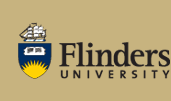
Students who achieve a grade point average of 5.5 or better in the first two years of the Bachelor of Speech Pathology may enrol in the Bachelor of Speech Pathology (Honours) program in Year 3.
Other students may be admitted at the discretion of the Faculty Board, subject to specific conditions.
To progress to Year 4 of the Honours program, a student must have attained at least a credit average across all third year topics including a credit grade in SPTH3902 Professional Studies & Communication Sciences 4A and SPTH3908 Professional Studies & Communication Sciences 4B, which have specified honours assessment requirements.
The BSpPath (Hons) program is open to students enrolled in the BSpPath degree and runs concurrently with years 3 and 4 of the ordinary degree. It has the following additional aims.
To qualify for the Bachelor of Speech Pathology (Honours) a student must complete 153 units with a grade of P or NGP or better in each topic, according to the program of study below.
Normally at least 31.5 units must be completed at a given level before proceeding to any higher level topics.
36 units comprising:
SPTH1102 Introduction to Anatomy and Physiology (4.5 units)
SPTH1103 Anatomy and Physiology of Speech (4.5 units)
SPTH1104 Clinical Skills and Practice 1 (4.5 units)
SPTH1105 Child Development and Learning (4.5 units)
SPTH1201 Psychosocial Aspects of Speech Pathology (4.5 units)
SPTH1202 Research Methods in Speech Pathology (4.5 units)
SPTH1506 Linguistics and Phonetics 1 (4.5 units)
SPTH1509 Linguistics and Phonetics 2 (4.5 units)
36 units comprising:
SPTH2901 Professional Studies & Communication Sciences 1A (Communication Development & Disorders: Birth to Pre-School) (4.5 units)
SPTH2902 Professional Studies & Communication Sciences 2A (Communication Development & Disorders: School Age to Adolescence) (4.5 units)
SPTH2903 Clinical Skills and Practice 1A (Communication Development and Disorders) (4.5 units)
SPTH2904 Clinical Skills and Practice 2A (Communication Development and Disorders: School Age to Adolescence) (4.5 units)
SPTH2905 Professional Studies & Communication Sciences 1B (Motor Speech Disorders) (4.5 units)
SPTH2906 Professional Studies & Communication Sciences 2B (Voice and Swallowing Disorders) (4.5 units)
SPTH2907 Clinical Skills and Practice 1B (Motor Speech Disorders) (4.5 units)
SPTH2908 Clinical Skills and Practice 2B (Voice and Swallowing Disorders) (4.5 units)
36 units comprising:
SPTH3901 Professional Studies and Communication Sciences 3A (Acquired Language Disorders 1) (4.5 units)
SPTH3902 Professional Studies and Communication Sciences 4A (Acquired Language Disorders 2) (4.5 units)
SPTH3903 Speech Pathology Practicum 1 (4.5 units)
SPTH3904 Speech Pathology Practicum 2 (4.5 units)
SPTH3905 Clinical Skills and Practice 3 (Complex Disorders - Paediatrics) (4.5 units)
SPTH3906 Clinical Skills and Practice 4 (Complex Disorders - Adults) (4.5 units)
SPTH3907 Professional Studies and Communication Sciences 3B (Complex Disorders - Paediatrics) (4.5 units)
SPTH3908 Professional Studies and Communication Sciences 4B (Complex Disorders - Adults) (4.5 units)
45 units comprising:
SPTH4901 Speech Pathology Practicum 3 (13.5 units)
SPTH7000A Honours Thesis A (9 units)
SPTH7000B Honours Thesis B (9 units)
SPTH7003 Speech Pathology Honours Practicum (13.5 units)
Except with the permission of the Faculty Board:
The award of a grade of Fail (F) in the same topic on more than one occasion or failure to complete the course within seven consecutive years may constitute prima facie evidence of unsatisfactory progress for the purposes of the University&##39;s Policy on Student Progress.
CRICOS Provider: 00114A | Updated: 02 Aug, 2010